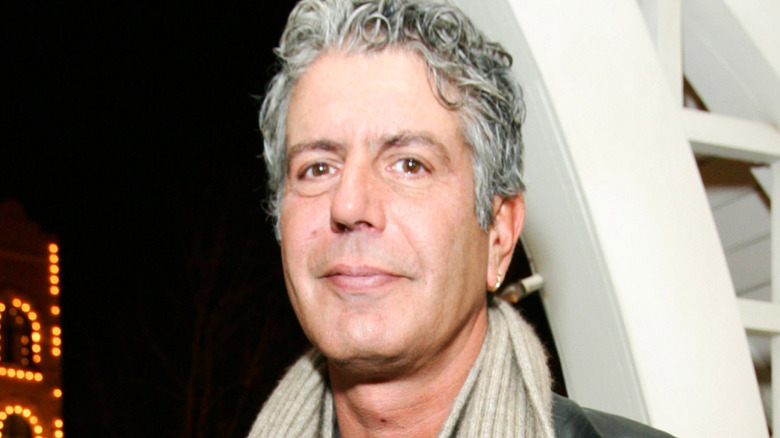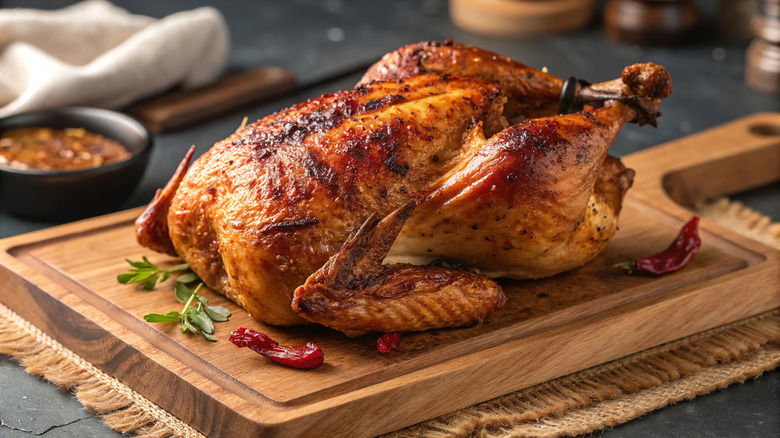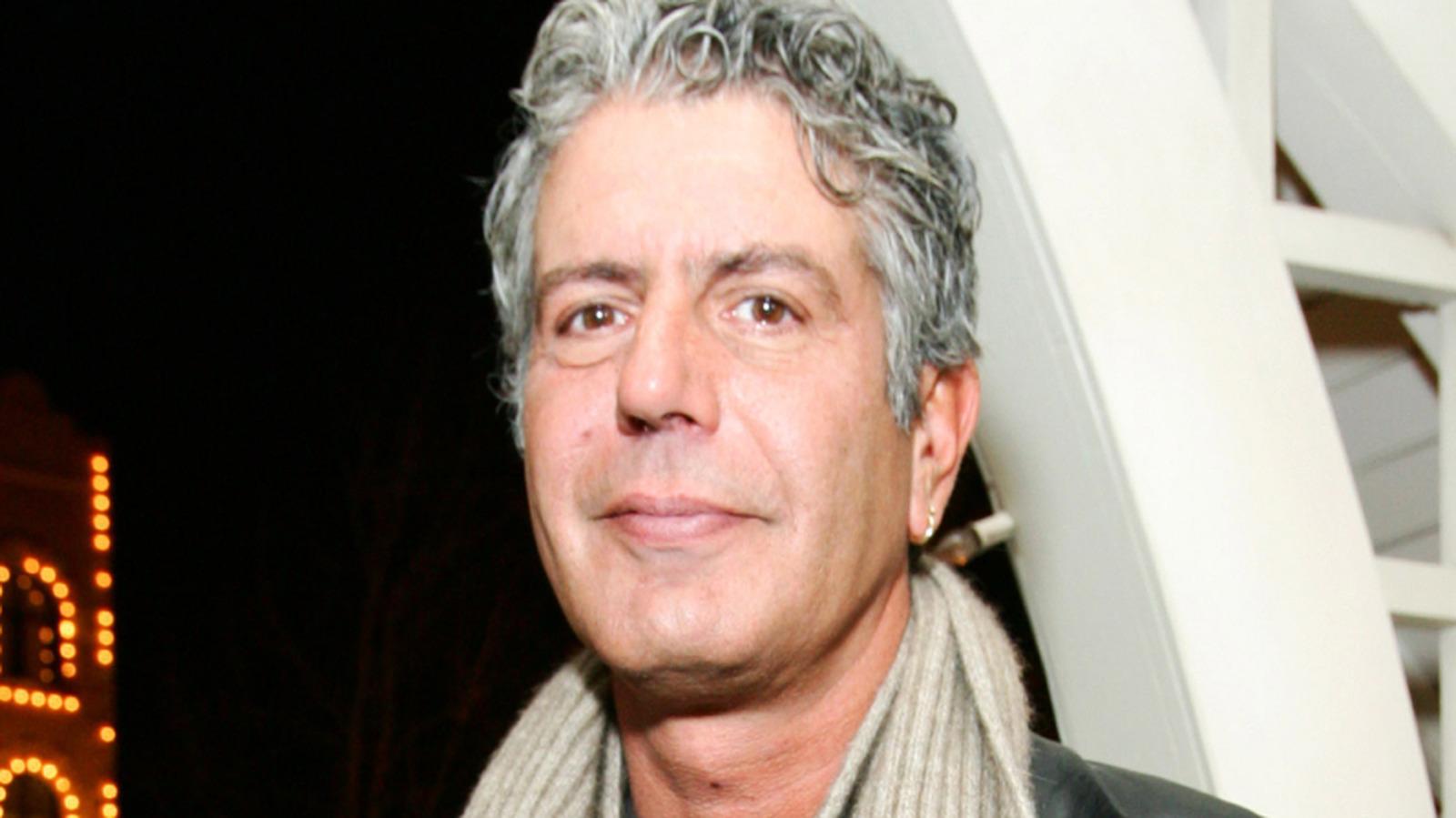
Jason Squires/Getty Images
It's a popular narrative among chefs that chicken is one of those foods you should never order. Though it was not his intention, that idea largely entered the cultural zeitgeist in 1999, after Anthony Bourdain published an essay in The New Yorker entitled, "Don't Eat Before Reading This". Though it was written to amuse his colleagues more than it was meant to expose an industry, the essay pulled back the curtain on restaurant kitchens and let loose some of the dirty secrets hiding behind popular dishes. Throughout the essay, Bourdain gave his unadulterated take on a myriad of restaurant foods, not least of which was chicken.
"Like most other chefs I know, I'm amused when I hear people object to pork on nonreligious grounds. 'Swine are filthy animals,' they say. These people have obviously never visited a poultry farm," he mused. If you aren't well-versed, there's a secret side of chicken farming, and it gets more than a little dark. Bourdain launched into a laundry list of reasons why you should think twice before ordering chicken at a restaurant, including its tendency to spoil at a speedy rate and its ability to transfer salmonella to other foods when improperly handled. Though he shut down pig-slanderers in two quick lines, his real beef with chicken wasn't with the bacteria, but with the fact that it's an unexciting option. "It bores the hell out of chefs," he wrote, "It occupies its ubiquitous place on menus as an option for customers who can't decide what they want to eat."
Chicken may be a boring meat, but Bourdain still enjoyed it

Merch Hub/Shutterstock
Bourdain's revelations about the industry ushered in a stigma within America's dining culture. Chicken endured a bad rap in the upscale food scene, designated as the boring meat for the unadventurous eater. In adherence to Bourdain's sentiments, it was known as the menu item chefs gave the least amount of effort and thought to. And just as Bourdain opined in 1999, it never surprised you. "Pork tastes different, depending on what you do with it," he wrote, "but chicken always tastes like chicken." The bias against chicken encouraged some food critics to order it all the more. Eater's Bill Addison told Bon Appétit, "Think of the chicken as a litmus test. If a restaurant nails the chicken, you can trust they are going to nail everything else." Bourdain seemed to understand this.
Years after his bold statements in The New Yorker, we watched Bourdain ravenously enjoy restaurant chicken many times over. When he visited Singapore for "No Reservations", he delighted in tandoori chicken and squealed with delight over the idea of chicken satay. He gushed over chicken and biryani in Sri Lanka. Bourdain loved Popeyes (but you would never catch him ordering chicken from McDonald's). He thought Willie Mae's in New Orleans had the best fried chicken in the world, and he had a killer recipe for poulet Basquais. So go ahead and eat your chicken. Just remember, it doesn't have to be boring.



